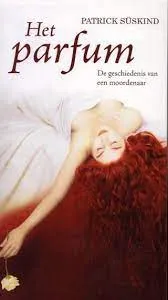
Hello Hivers and Book Clubbers,
Let's change things up for once: for the first time, I'm writing a review about a fictional book instead of the usual non-fiction. This is mostly due to personal interests feeding into my book-buying habits: I simply don't have as many non-fictional books on my shelf. I did pick this one up a few weeks ago, however: it's called 'The Perfume', written by German novelist Patrick Suskind in 1985. I got my hands on a Dutch translation released in 2006. With about 250 pages, it's not too long a read.
Setting and Motifs
Don't worry, I'm not going to spoil the entirety of the plot of the book; some mystique should remain. However, to talk about the setting is not nearly as intrusive. The story takes place in multiple places in 18th-century France, among them the capital Paris. Paris and its people do not receive a flattering description in this book: life seems to be miserable, filthy and short. A common post-Enlightenment view of the 'Dark Ages', basically. The story also moves to the countryside at a later stage for some variation, and this is viewed in a far less negative light by the author.
The main motif in the book can be gleaned from the title: it's all about smells. I don't even want to guess the amount and variation of smells that is described in the book. It's a lot, let's leave it at that. And as everyone living in a big city today knows, some of these smells aren't particularly nice. The vivid descriptions sometimes really let you wrinkle your nose at them in disgust.
Writing Style
This story of about 250 pages contains 51 chapters, which I consider a lot. Sometimes, it's not entirely clear why a certain point is chosen as the end of one chapter and the beginning of another. What I mean by that is that the same scene is still going on, with no time having elapsed in between whatsoever (though most of the time this IS the case). The story is relatively fast-paced, and the prose (at least in the Dutch translation) is easy to follow.
There is not much dialogue going on in the story. It is mainly pushed forward by the thoughts and actions of the characters involved. The thoughts and experiences of the characters are used to provide exposition about the setting, and to convey how characters think of one another and the situation they are in at that moment.
Plot
A slight bit about the plot, to at least get the imagination going. The story follows Jean-Baptiste Grenouille, who is quickly recognised as a remarkable child for two reasons. The first: he does not smell at all. This is perceived as very strange by others. The second is that his own sense of smell is abnormally good. As he grows up, Grenouille seems to rely more on his sense of smell than anything else. This makes him particularly suited for smell-related occupations, and he ends up helping at a parfumerie in his early teens. This quickly becomes his life's passion.
Conclusion
Dutch readers may have noticed the sub-title shown in the top image, which translates to 'the history of a killer'. How this plays into the story, I'll leave open, to keep the mystery. I'll probably return to the realm of non-fiction in the future, but this was an enjoyable diversion. There is also an American film adaptation of this movie, which I haven't seen, which may be an option for those of you more cinematically inclined. Anyways, I'll see you in the next one,
-Pieternijmijer
(Image: Book Cover)
